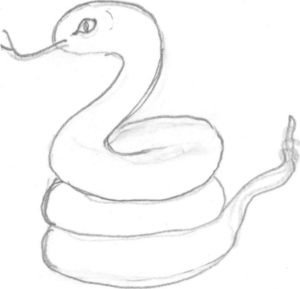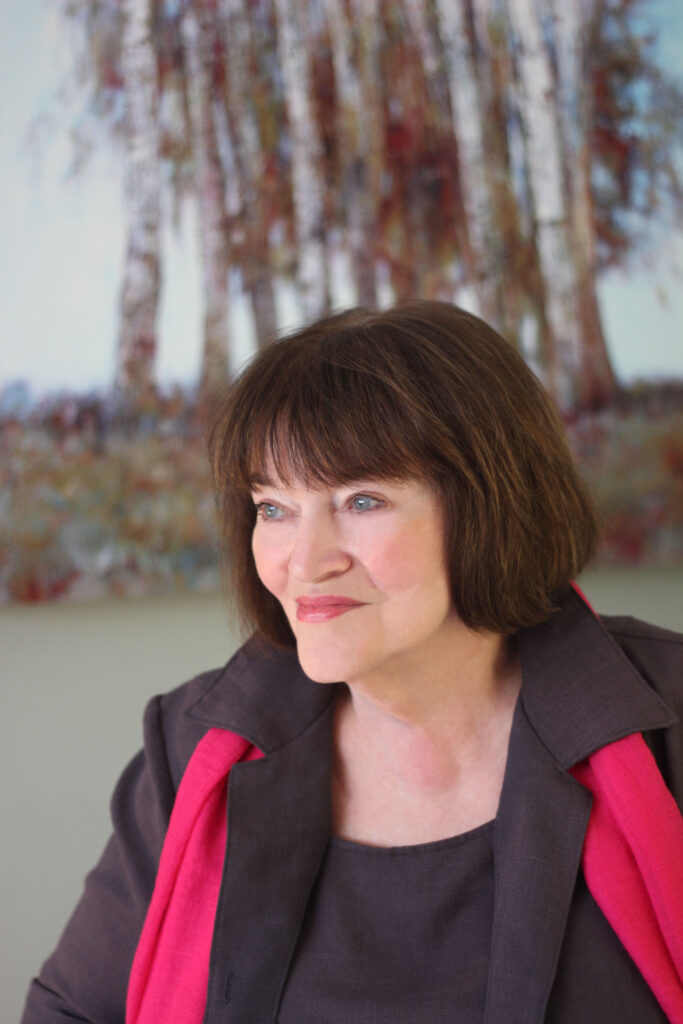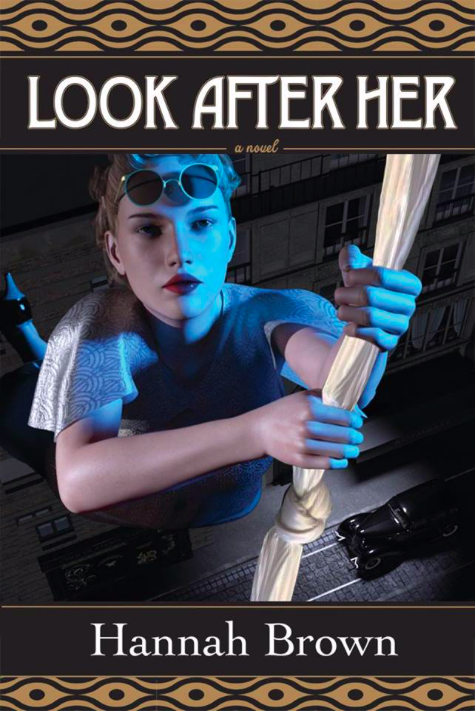The spring after my father died, a large bull garter snake undulated across the floor of what had been my father’s office in the basement. “The Old Boy’s gone,” my brother said, “so the snake must have figured it was finally safe.”
* * *
I had learned to walk in the dewy grass outside the back door of our farmhouse in Hastings County. I have a dim memory of snatching something moving. My hands were always quick. I headed back to the house and knocked on the door. I don’t remember what happened next, but I do remember my father outside, his face red, fiercely chopping with the axe. My mother said I had entered the kitchen with a small garter snake spiraling around my forearm, its head licking the air by my hand.
My father’s horror of snakes was a weakness my mother enjoyed. When he took her and her mother to Florida the first time, they bought a papier-mâché snake, a little piece of string between each of its sections. If you pinched one of the sections between thumb and forefinger, both its head and its tail sections writhed. The conspirators placed it on the dashboard, and my father studiously ignored it all the way to Tampa.
When they parked at the motel, my grandmother picked it up. “Why, what’s this, Bill?” He ignored her question, which sent my mother and her mother into gales of laughter— then, and every time they told the story.
I was fifteen and about to graduate from high school, and had read some mischievous information about interpreting symbols. I decided to make another open foray in my ongoing battle with all adults. My father, who had gone out with my mother’s older sister before he went out with my mother, was sitting with my aunt at the kitchen table.
It was large enough for eight of us at every meal: breakfast, lunch, and supper, every day, no breaks, no ceasefires. There were eight of us, six children and my mother, and him. Unlike city children, or children who lived a happy distance from the local school, we went home for lunch—and so did he. He was a fierce man, tall and well-built, with an inclination for the fancy. When he went away to university, one of his first purchases was a suit of tails.
There he sat, smoking a cigarette with my aunt. She was also fierce, an accomplished artist, who could kick her foot up over her head on a moment’s notice. She smoked without cease, but my father only smoked one cigarette, and only with her when she visited.
“I have a personality test, “I announced. “If you’re not too chicken.”
Neither was. They both willingly took the pencils and pieces of paper. My instructions were to draw a snake. My father was finished first. His snake looked like this:

My aunt finished in a few minutes. This was her snake:

“So, what’s your interpretation, Hannah?” My aunt was pleased with what she had drawn, but not for long.
“The more coils your snake has, the more sexually frustrated you are.”
My father laughed out loud.
* * *
My mother picked up the garter snake with the bacon tongs and threw him in the ditch across the road. She looked aghast when she said a little bit of tail had broken off, and then smiled and coyly asked me if I wanted it.




 Each Tuesday we feature audio or video of an SR Contributor reading their work. Today we’re proud to feature a podcast by Hannah Brown.
Each Tuesday we feature audio or video of an SR Contributor reading their work. Today we’re proud to feature a podcast by Hannah Brown.